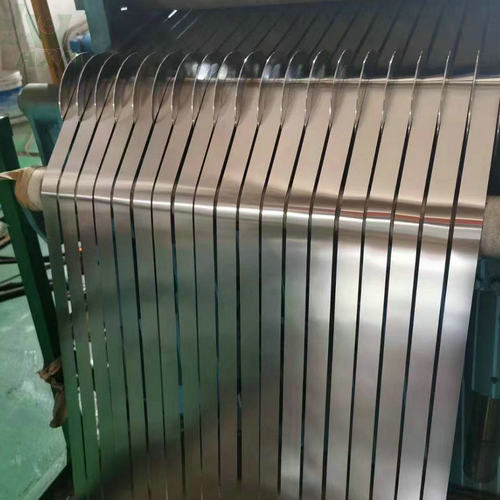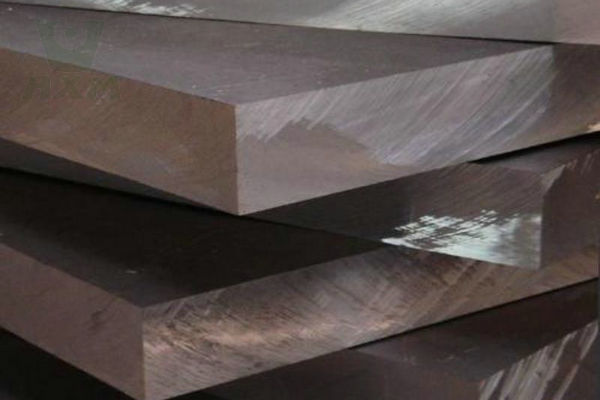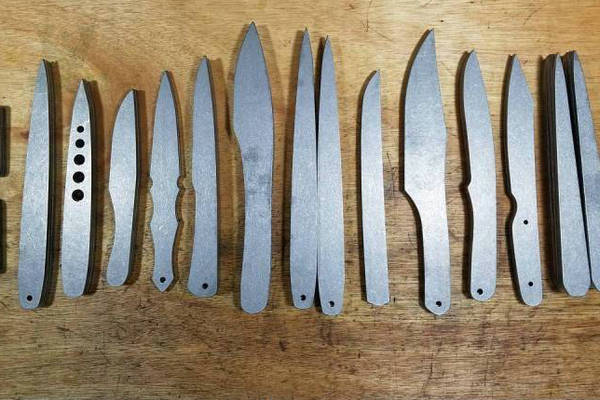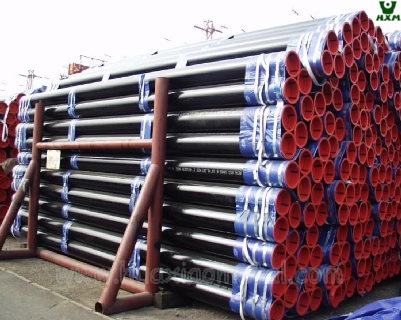Titanium Steel vs Stainless Steel are two commonly used metal materials in the industrial and construction fields. Each has unique properties and applications, but it is important to understand the differences between them when choosing the right material. This article will explore the main differences between titanium and stainless steel, including their physical and chemical properties, application areas, costs, and respective advantages, to help buyers choose the right product for themselves.
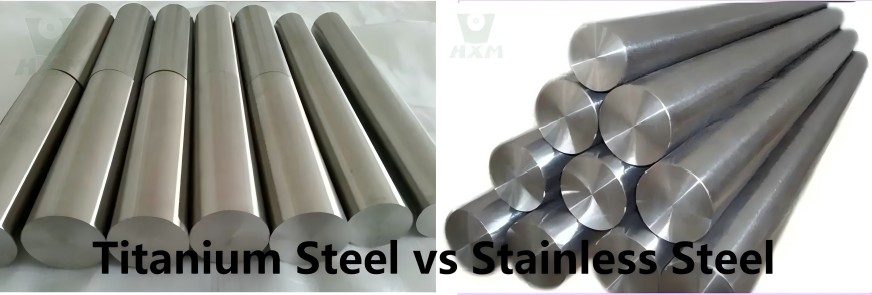
What is Stainless Steel?
Stainless steel is an alloy steel whose main components are iron, chromium and nickel. Its corrosion resistance comes from the chromium content and is usually divided into three categories: austenitic stainless steel, martensitic stainless steel and ferritic stainless steel. 304 and 316 stainless steel are common types and are widely used in industries such as construction, kitchenware and automobiles.
What is Titanium Alloy?
Titanium is a lightweight metal with high strength and excellent corrosion resistance. Its density is about 4.5 g/cm³, which is about 60% of stainless steel, and its melting point is as high as 1668°C. The unique properties of titanium make it an important material in the aerospace, medical and chemical fields.
Titanium Steel vs Stainless Steel: What Are Their Differences?
Titanium Steel vs Stainless Steel Chemical Composition:
| Material | Fe | C | O | N | Cr | Ni | Mn | P | S |
| 304 Stainless Steel | 0.02% | 0.08% | 0.03% | 0.10% | 18.0-20.0% | 8.0-10.5% | 2.00% | 0.05% | 0.03% |
| 316 Stainless Steel | 0.03% | 0.08% | 0.03% | 0.10% | 16.0-18.0% | 10.0-14.0% | 2.00% | 0.05% | 0.03% |
| Material | Ti | Al | V | Sn | Fe | C | O | N |
| Ti-6Al-4V | 90% | 6% | 4% | – | <0.25% | <0.10% | <0.20% | <0.03% |
| Ti-5Al-2.5Sn | 90% | 5% | – | 2.50% | <0.25% | <0.10% | <0.20% | <0.03% |
| Ti-3Al-2.5V | 94.50% | 3% | 2.50% | – | <0.25% | <0.10% | <0.20% | <0.03% |
Notes:
304 stainless steel: Contains 18% chromium and 8% nickel. It is a widely used austenitic stainless steel with good corrosion resistance and weldability.
316 stainless steel: Compared with 304 stainless steel, 316 stainless steel contains molybdenum, which enhances its corrosion resistance, especially in chloride environments.
Ti-6Al-4V: The most commonly used titanium alloy, with an excellent strength-to-weight ratio, suitable for aerospace and medical fields.
Ti-5Al-2.5Sn: Has good weldability and is often used in aviation and industrial applications.
Ti-3Al-2.5V: Provides high strength and good fatigue resistance, suitable for structural and engineering applications.
Titanium Steel vs Stainless Steel Mechanical Properties:
| Material | Tensile Strength (MPa) | Yield Strength (MPa) | Elongation (%) | Hardness (HB) |
|---|---|---|---|---|
| 304 Stainless Steel | 520-720 | 210-310 | 40-50 | 123-217 |
| 316 Stainless Steel | 480-620 | 170-310 | 40-50 | 130-210 |
| Ti-6Al-4V | 900-1100 | 800-900 | 10-15 | 330-400 |
| Ti-5Al-2.5Sn | 900-1050 | 800-850 | 12-15 | 320-390 |
| Ti-3Al-2.5V | 900-1000 | 800-850 | 10-15 | 300-370 |
Titanium Steel vs Stainless Steel Physical Properties:
| Material | Density (g/cm³) | Thermal Conductivity (W/m·K) | Electrical Conductivity (IACS) | Melting Point (°C) |
|---|---|---|---|---|
| 304 Stainless Steel | 7.93 | 16.2 | 1.4% | 1400-1450 |
| 316 Stainless Steel | 7.98 | 15.1 | 1.5% | 1375-1400 |
| Ti-6Al-4V | 4.43 | 6.7 | 3.0% | 1600-1660 |
| Ti-5Al-2.5Sn | 4.46 | 7.0 | 3.5% | 1600-1650 |
| Ti-3Al-2.5V | 4.43 | 7.5 | 3.0% | 1600-1650 |
Titanium Steel vs Stainless Steel Applications:
Stainless steel is often used in environments that require corrosion resistance, high-temperature resistance, and good mechanical properties, especially in daily life.
Titanium alloys are mainly used in aerospace, medical, and high-end industrial fields due to their excellent strength-to-weight ratio, high-temperature resistance, and biocompatibility.
1. Application of Stainless Steel
Architecture and construction: Stainless steel is widely used in architectural decoration, structural components of bridges, and high-rise buildings due to its corrosion resistance and aesthetics.
Kitchen equipment: Stainless steel is widely used in kitchen equipment such as sinks, kitchen utensils, and tableware due to its anti-fouling and easy-to-clean properties.
Automotive industry: Stainless steel is used in the exhaust system, body shell, and other parts of automobiles due to its anti-oxidation and high-temperature resistance.
Medical equipment: In the medical field, stainless steel is used as surgical instruments and medical equipment due to its biocompatibility and corrosion resistance.
Food and beverages: Stainless steel is widely used in food processing and beverage production due to its non-toxic and corrosion-resistant properties.

2. Application of Titanium Alloy
Aerospace: Titanium alloy is widely used in aerospace components such as aircraft fuselages, engine parts, etc. due to its lightweight, high strength, and high-temperature resistance.
Medical implants: Titanium alloys are used to manufacture medical implants such as bone screws, joint prostheses, etc. due to their good biocompatibility.
Chemical equipment: In the chemical industry, titanium alloys are used to manufacture corrosion-resistant equipment and containers such as reactors and heat exchangers.
Marine engineering: Titanium alloys excel in marine applications and are used to manufacture marine equipment, submersibles, and offshore platforms due to their excellent corrosion resistance and resistance to seawater erosion.
High-end consumer goods: Titanium alloys are also used in luxury goods and high-end consumer goods (such as watches and eyeglass frames) due to their lightweight and durable properties.
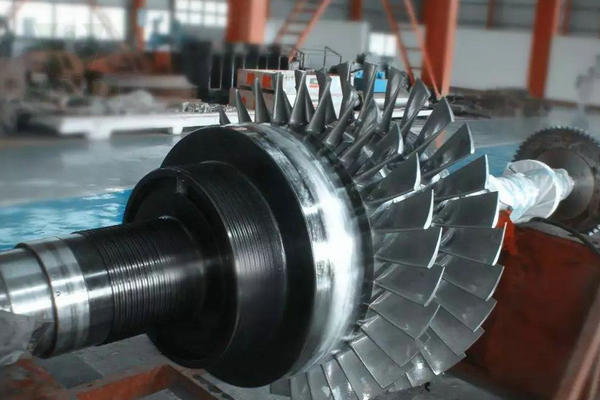
Titanium Steel vs Stainless Steel Prices:
Titanium – is expensive due to its complex extraction process and difficulty in manufacturing. Pure titanium is generally cheaper than titanium alloys, but still more expensive than stainless steel.
Titanium alloys – are more expensive than pure titanium due to the addition of alloying elements and the special processes required when processing.
Stainless steel – is much cheaper than titanium and titanium alloys. The wide availability and ease of production of stainless steel make it a more cost-effective choice for most applications unless weight reduction or extreme performance is required.
Titanium Steel vs Stainless Steel Magnetism:
Stainless Steel:
The magnetic properties of stainless steel depend primarily on its composition and microstructure.
- Austenitic stainless steels (e.g. 304, 316) are generally non-magnetic, although they may exhibit some magnetism during cold working.
- Martensitic stainless steels (e.g. 410, 420) and duplex stainless steels are significantly magnetic and can therefore be used in applications where magnetic properties are required.
Titanium Alloys:
Titanium and its alloys are generally non-magnetic. This makes titanium alloys very popular in certain applications (e.g. medical devices, and aerospace) as they are not disturbed by magnetic fields.
Titanium Steel vs Stainless Steel Weldability:
Stainless Steel:
Stainless steel has good weldability, but the specific performance depends on the alloy composition and welding method.
Austenitic stainless steel usually has good weldability and is not prone to cracking or deformation after welding.
However, some martensitic stainless steels may be brittle when welded, so special attention needs to be paid to preheating and post-heat treatment during welding.
Titanium Alloy:
The weldability of titanium alloy is relatively poor, and hydrogen embrittlement and oxidation problems are prone to occur during welding.
In order to weld titanium alloy, it is usually necessary to carry out under inert gas protection to prevent titanium alloy from reacting with oxygen and nitrogen in the air at high temperatures.
The use of techniques such as TIG welding (tungsten inert gas welding) and MIG welding (metal inert gas welding) can improve the welding quality.
Titanium Steel vs Stainless Steel Machinability:
Titanium: difficult to process, requires specialized tools and techniques, and is usually more expensive.
Stainless steel: easy to process, suitable for large-scale production, and less expensive.
Titanium Steel vs Stainless Steel Rust:
Stainless steel has good corrosion resistance, but it may rust in some harsh environments, especially in the presence of corrosive substances such as chlorides.
Titanium alloy has superior corrosion resistance, almost no rust, and is suitable for various corrosive environments.
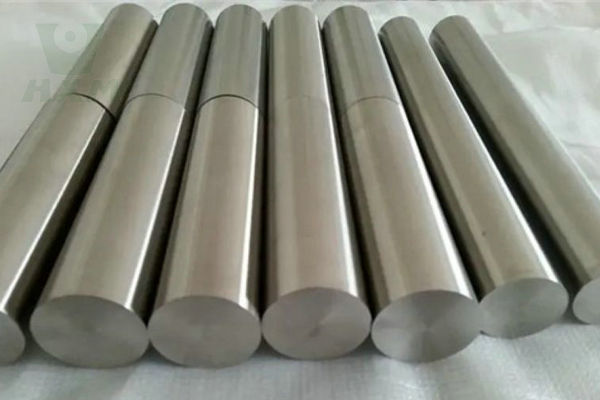
Titanium Alloy
Titanium Alloy Supplier and Manufacturer From China Huaxiao Metal is a China and Asia wide supplier of metal and titanium raw materials to the industrial,
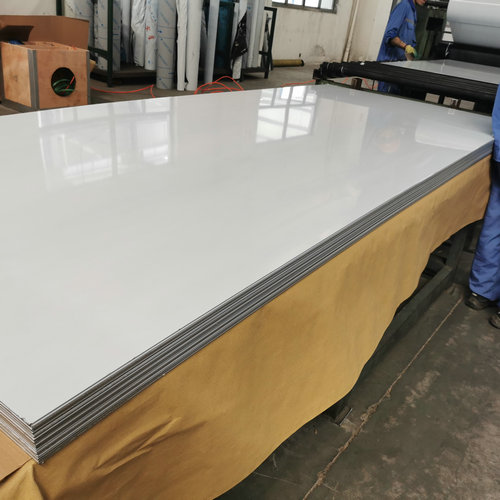
Stainless Steel
Stainless Steel Suppliers From China Huaxiao is one of the leading stainless steel suppliers & manufacturers in China, we can provide stainless steel plates, stainless
Stainless Steel vs. Titanium: Which One to Choose?
From the above content, we can conclude under what circumstances stainless steel and titanium alloys are chosen.
Situations for Shoosing Stainless Steel
Cost considerations: Stainless steel is generally cheaper than titanium alloys, and for projects with limited budgets, choosing stainless steel is an affordable choice.
Processability: Stainless steel is easy to process and weld, suitable for applications that require complex shapes or rapid production.
Strength and durability: Stainless steel provides good strength and durability, especially in construction, food processing, and general industrial environments.
Applicability: For most everyday applications, stainless steel (such as 304 or 316) can provide sufficient corrosion resistance, especially in milder environments.
Situations for Choosing Titanium Alloys
Corrosion resistance: Titanium alloys have excellent corrosion resistance and are suitable for applications in marine, chemical, and highly corrosive environments.
Strength and weight: Titanium alloys are high in strength and lightweight, suitable for aerospace, military, and high-performance industrial equipment that require high strength and low weight.
High-temperature performance: Titanium alloys maintain good strength and corrosion resistance at high temperatures and are suitable for high-temperature applications.
Long-term durability: Titanium alloys exhibit excellent durability and long life in harsh environments, reducing maintenance costs.
In Conclusion:
Titanium and stainless steel each have their advantages and disadvantages, and choosing the right material depends on the specific application requirements. If your project requires corrosion resistance, high strength, and lightweight, titanium is undoubtedly the ideal choice; if you are looking for economy and wide applicability, 304 or 316 stainless steel may be more suitable.

